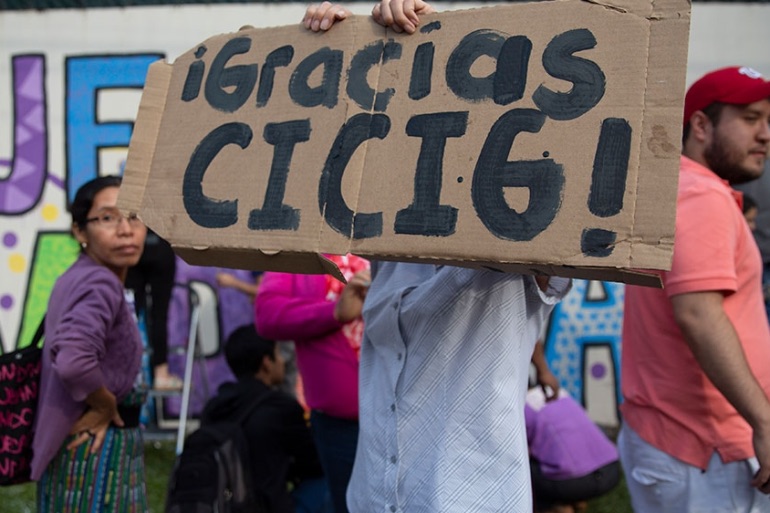
A lifetime of anti-corruption efforts in Guatemala led to the creation of a UN backed anti-corruption agency. How will Guatemala move forward after its expiration and what does this signal?
Guatemalan government and legal systems are riddled with corruption in the forms of extortion, fraud, and voter intimidation from political elites. This infrastructure, which became increasingly concerning after the 1996 Peace Agreement , triggered public upset and numerous protests that pushed for change in 2006. Over a decade of advocacy from fearful citizens led to the creation of the United Nations backed International Commission Against Impunity in Guatemala (CICIG) in 2007.
This agency was dedicated to exposing the injustices that the legal system was hiding and holding criminals accountable the way that the legal system was supposed to. The CICIG was transformative for Guatemala’s safety, political stability, and public good.
The CICIG had proven to be efficient and beneficial. Its track record includes the indictment of Guatemala’s former president and vice president , the prosecution of two other former presidents , prosecution of congressional members , and prosecution of Supreme Court officials . The initiative was going after the very officials who assisted in the creation of it.
After 12 productive years and prevailing from multiple attacks by previous presidents, the CICIG ended its operations on September 3rd, 2019. The mandate was not renewed in 2018 by President Jimmy Morales and thus expired. What was once a glimpse of hope for activists in the country is now gone. How will Guatemala hold their own systems accountable without UN interference?
The Guatemalan government has been at a standstill since the early 2000’s. Three steps are taken forward in uncovering corruption just as three steps are taken back when there is a new election. The push for progress among the public is a force to be reckoned with and was starting to potentially push Guatemala into the right direction. With the CICIG now expired, how is Guatemala going to prevent a regression of what was established in the 12 years of its operations?
Guatemala had lost a lot of international support from both the UN and the United States in regards to anti-corruption efforts. Different from the Bush and Obama administrations, the Trump administration facilitated efforts to dismantle the CICIG and thus create a space allowing for the old political elites of Guatemala to resume authority.
It has become increasingly clear that Guatemala, a country whose democracy hit a stand still moment, has an eroding democracy. A key factor in characterizing the future of the stand still is the expiration of the CICIG. It is abundantly clear that there are not comparable agencies to do similar overwatch work in a period where the key corruption players are making a comeback.
The movement against corruption is not ending in Guatemala. The Fiscalía Especializada Contra la Impunidad (FECI) is the special prosecutor’s office that was working alongside the CICIG. Despite the backlash from the Morales administration, FECI does its best work to help push the message of advocates and hold the legal system accountable. The fight against the Giammattei administration is a tough one and likely will not be successful if the expiration of the CICIG is any sort of future indicator. Regardless, it is suspected that advocates will not step down and will continue to push against the erosion of the Guatemalan democracy.
Photo from: Abbott, J. (2019, September 3). Guatemala’s CICIG: UN-backed anti-corruption body shuts its doors. Corruption News | Al Jazeera. https://www.aljazeera.com/news/2019/9/3/guatemalas-cicig-un-backed-anti-corruption-body-shuts-its-doors

0 Comments